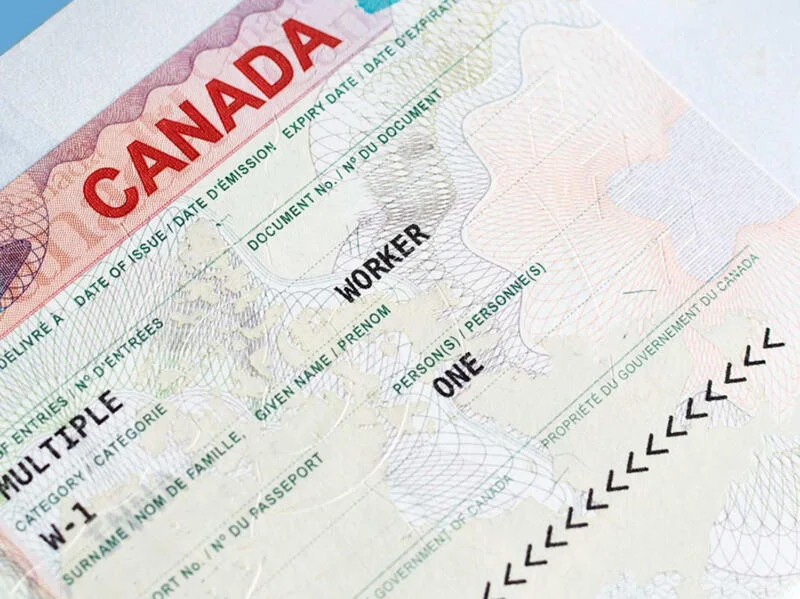If you’re exploring the possibility of obtaining Canadian citizenship or permanent residency, or considering business relocation, this article is a comprehensive guide for you. Canada offers a variety of immigration options for business owners, including start-up visas, self-employed programs, and provincial nominee programs. This blog outlines a potential path for international entrepreneurs seeking permanent residency in Canada. Unlike specific business relocation programs, this route starts with a work permit and can lead to permanent residency faster than traditional methods. We’ll discuss the procedures, their functioning, and provide a step-by-step guide that begins with obtaining a work permit, transitioning to permanent residence, and finally, citizenship.
Table of Contents
Meaning Of Business Immigration In Canada
Business immigration in Canada is a category that offers a multitude of programs designed to attract international business owners, entrepreneurs, investors, start-ups, and high-net-worth individuals who are eager to launch or expand their business ventures in Canada. These programs, such as the Start-Up Visa program, the Provincial Nominee Program tailored for business owners, the Self-Employed Program, and routes that transition from work permits to permanent residency, are all designed to provide a clear path to permanent residency and citizenship. By investing in a business in Canada and contributing to the Canadian economy, these programs offer a promising opportunity for international entrepreneurs.
These schemes provide a path for these people and their households to get permanent residency by beginning or purchasing a business in Canada and contributing to the Canadian economy through business exercises.
How To Get Citizenship In Canada Via Business Ownership
We will investigate each step of the business immigration route and the way to get permanent residency status in Canada via investment and finally become a citizen of Canada.
Step 1: Purchase Or Develop A Business In Canada
There are four methods international investors can invest in businesses in Canada:
- Beginning a new business.
- Purchasing an established business.
- Purchasing shares in an established business should be at least 33% or more.
- Purchasing a franchise
It’s important to note that you don’t need to be a permanent resident or citizen of Canada to start or invest in a business here. However, you must operate your business with a valid work permit. Therefore, it’s advisable to hire a manager in Canada to oversee your business until you are authorized to work in Canada.
The first investment amount to purchase or develop a business in Canada can vary between $150,000 and $350,000; however, this sum can be higher or lower based on your individual and financial objectives.
Step 2: Make An Application For A Work Permit
When you have begun or bought a business in Canada, you can apply for a work permit as an international owner of a business in Canada. So many work permits will be available to you depending on your setting and immigration objectives. They have to do with:
If you enjoy this article, don't miss out on the valuable insights and information available in our other related posts:
- Saudi Arabia Work Visa Procedure 2024: Types Of Visas And Application Manual
- Intentions To Work In The UAE: Understand The New Laws And Legal Visa Choices
- United Kingdom Embassy Recruitment 2024: New Jobs And Application Procedure
- Kuwait Enforces Stricter Work Permit Laws For International Employees
- Ontario Introduces REDI Pilot Program In January 2025
- LMIA-based work permits: Although owner-operator Labour Market Impact Assessments are no longer excluded from publicizing conditions, business owners can still apply and get Labour Market Impact Assessments within the general stream to operate in Canada as supervisors of their enterprises.
- Intra-company transferees: These are work permits for business owners who already manage a multinational firm in their home nation and have developed a new branch in Canada.
- Investors under free-trade consensus: This class of work permits authorizes nationals of specific nations, such as South Korea, Vietnam, Mexico, New Zealand, Chile, Panam, Colombia, Japan, the United States of America, Singapore, Peru, the EU, and Australia, to make an application to relocate to Canada as business investors.
- Entrepreneur work permits: For international citizens who plan to work on a business that will create significant advantages for Canada.
- Start-up visa work permits: For business persons desiring to develop inventive or highly scalable businesses in Canada.
- PNP Canada programs: Although they may be difficult for some international investors, they still provide a viable alternative for work permits.
- Quebec Immigrant Investor Program: This program is best for high-net-worth individuals seeking a work permit in Canada and, eventually, permanent residence.
Step 3: Move To Canada To Operate Your Business
After landing in Canada as an international employee, you must operate your business for at least one year before changing to permanent residence. The duration of operation is based on the kind of business you have, whether established or new, and your type of work permit.
Remember that your business does not have to create specific paths or be beneficial. However, it must be active and operational and have enough funds to protect operational expenses and reimburse income.
Step 4: Make An Application For Permanent Residence As A Business Owner
Suppose you have been operating in Canada as a business owner for at least one year and are actively engaged in your business. In that case, you might be eligible to apply for permanent residence via the Express Entry program under the Federal Skilled Worker stream. Proprietors of operating a business in Canada can earn you an extra 200 points for an arranged job in the Express Entry system if your business satisfies certain conditions.
Generally, your business is required to be functioning and satisfy the conditions below:
- Your business is involved in operational sales of goods and services to clients within Canada or globally.
- Your business possesses all the authorizations and permits to function legitimately in Canada.
- Your business possesses a physical commercial site in Canada.
- Your business has so many domestic workers.
- As a business owner, your position is concentrated on administrative or senior managerial obligations. You govern the broader scope of the business operations and represent everyday management to middle managers.
- You are making advancements toward the implementation of your business plan.
Furthermore, to be qualified for permanent residence via the Express Entry program, you are required to satisfy specific measures, which usually have to do with the following:
- A language proficiency points equivalent to a minimum of Canadian Language Benchmark (CLB) 7
- Having a bachelor’s program or other post-secondary school certifications.
- A clean criminal history and the lack of severe ongoing medical problems.
Hence, specific nuances and conditions are required to be fulfilled to make sure of success:
- Immigration, Refugee, and Citizenship Canada (IRCC) may challenge your assertion of an arranged job if your business operations are based out of your home. Commercial locations are a must to authenticate the actuality of your business.
- Candidates who attempt to apply under the Canadian Experience Class (CEC) program within Express Entry while having and supervising their firm in Canada will be denied. This is because self-employment under the Canadian Experience Class is not identified as a work skill in Canada.
- Finally, if your business does not indicate a scale of operations, your employment offer may be seen as unreal, putting your request under high threat.





